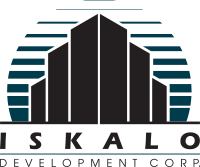Choosing a suitable development site can be overwhelming when there are so many business location factors to consider. Whether you’re building for a start-up or expanding your existing business, it’s important that you consider all of the factors that could potentially affect your business before settling on a location.
How to Choose the Right Location for Your Business
These location factors will help you decide whether or not a community is ideal for your business:
1. Market and Demographics
It’s important to know who your ideal customers are when choosing a business location. Consider your target market’s demographics, including age, gender, income, occupation, spending habits and any other characteristics that may be valuable in relation to where they’re spending their time. It’s important to place your business in a community that will support your product or services.
In many cases, your business’ location must also meet the needs of your suppliers and distributors.
2. Traffic
For many businesses, traffic is one of the most important factors to consider when choosing a location. If your business relies heavily on foot traffic, locate your warehouse or office in a busier area surrounded by other businesses with a similar customer demographic to your own. If your business requires confidentiality, you may want to choose a suburban neighborhood with less traffic.
3. Accessibility
When choosing a business location, accessibility should be at the forefront of your mind. Think about each person that will be entering your business, including customers, clients, suppliers, distributors and employees.
Find out if your proposed site offers space for a parking lot or whether the area provides public transportation for employees. In addition to transportation accessibility, business owners should take note of the neighborhood’s convenient offerings, such as restaurants, banks, grocery stores and daycares. You also need to ensure deliveries can reach your business safely and efficiently.
4. Competition
Being in close proximity to competing businesses could either hinder your success or benefit you. Establish which competitors might impede your business or encourage a healthy partnership before choosing where to situate your development site.
5. Costs
Cost must be considered before building on any development site. Find out what your utility expenses will be, required permits, geographical factors that may affect your infrastructural costs and any other associated regional conditions or obligations that may impact your development budget.
6. Growth Potential
When choosing a development site, it’s crucial that you keep the future of your business in mind. Plan for your anticipated growth, whether that be more employees, product selection or additional services. It’s important that you choose a community that will accommodate any space you may need for development while supporting your progress. A flexible location will give your business the most security.

